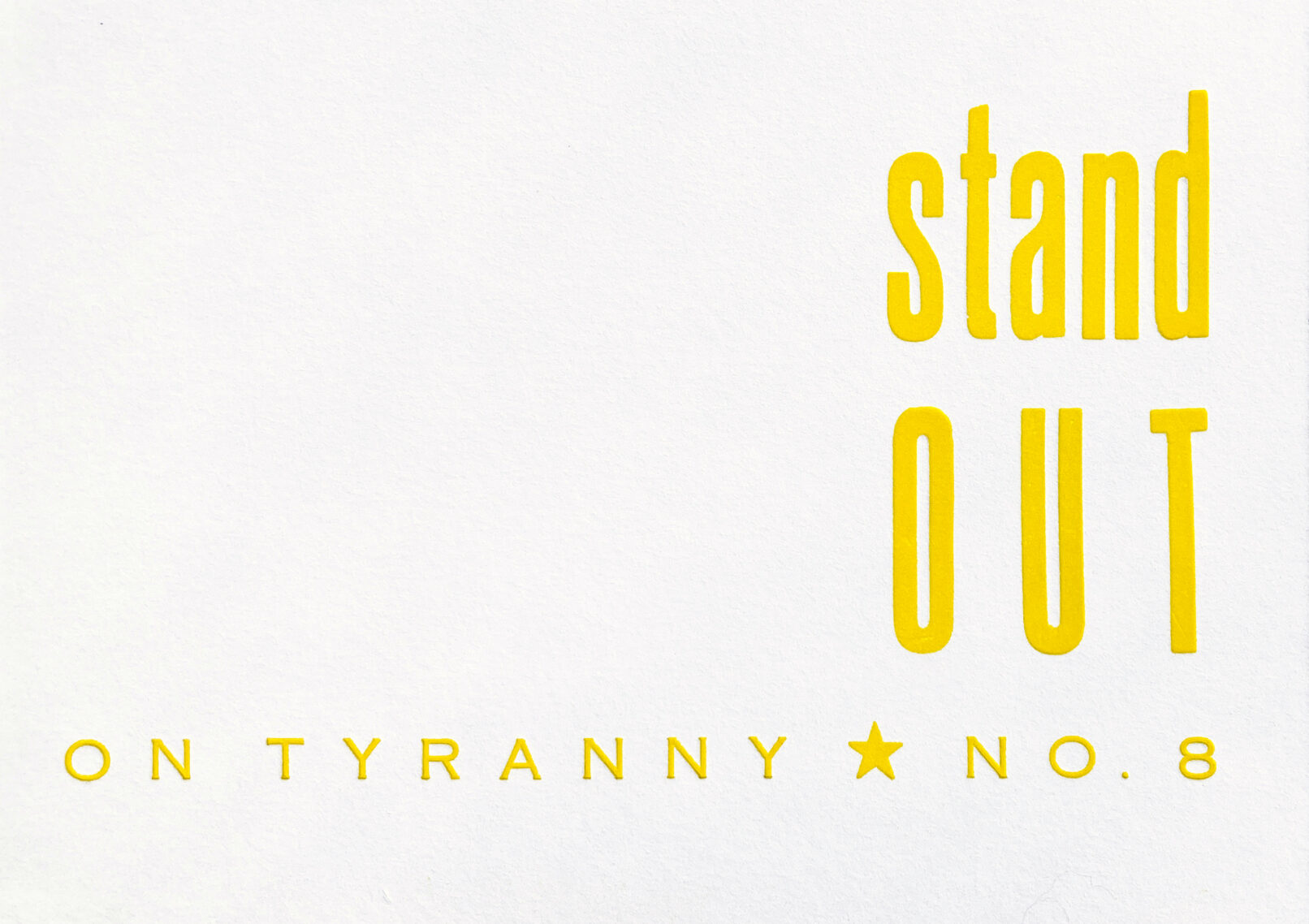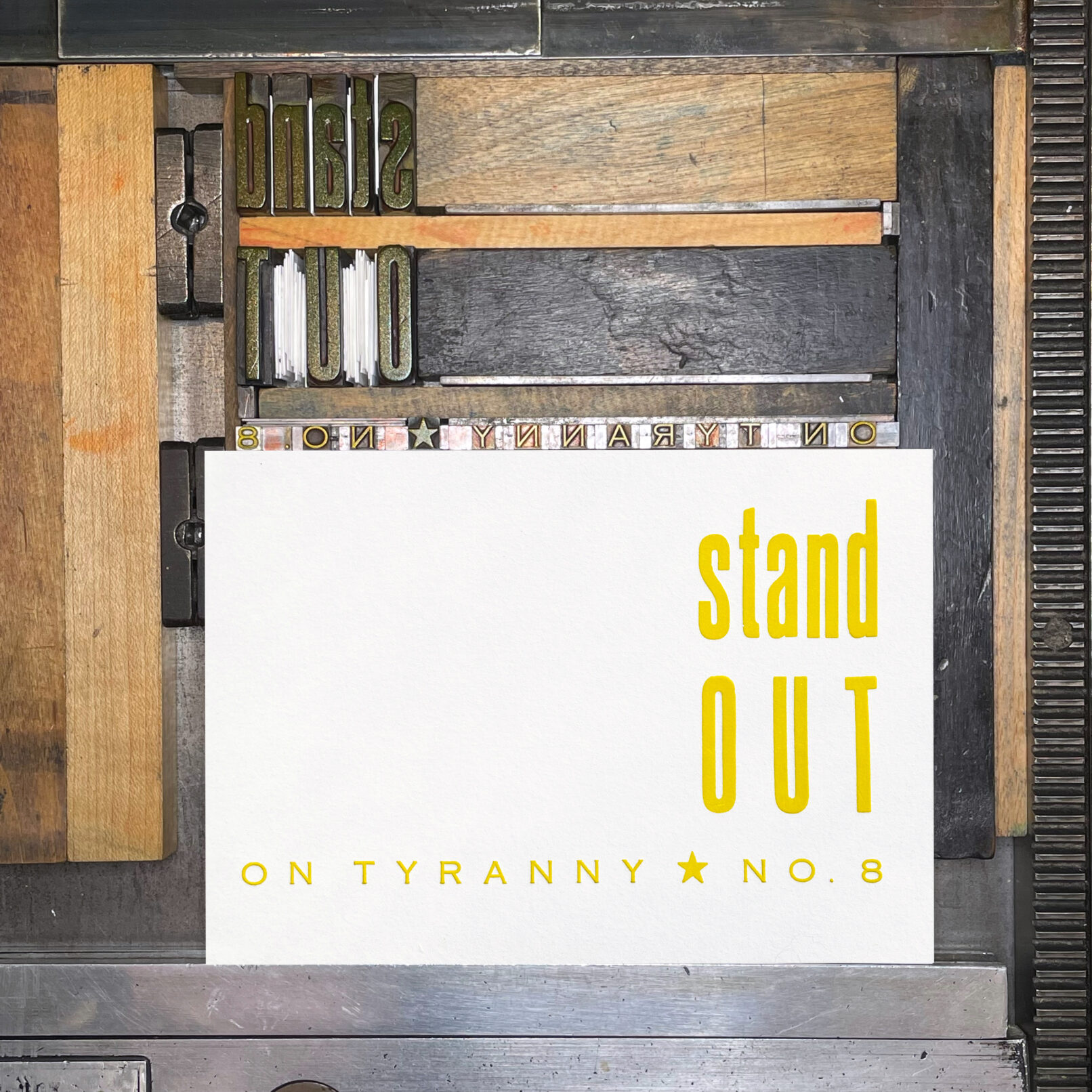“Someone has to. It is easy to follow along. It can feel strange to do or say something different. But without that unease, there is no freedom. Remember Rosa Parks. The moment you set an example, the spell of the status quo is broken, and others will follow.”
Timothy Snyder, On Tyranny
Maybe this lesson is easier for creatives to relate to, since we’re already used to standing out—a byproduct of the fact that we often think differently and see the world in different, and sometimes novel, ways through our creative practices.
When Snyder talks about standing out, he is talking primarily about standing out politically, which he says can be uncomfortable to do because we are all social creatures. He argues that the discomfort is important, though, and the ways in which we choose to “stand out” are unique to each of us and most closely linked to classic ideas of “freedom”—like the first tenet, “Do Not Obey in Advance”—since it is our freedom that grants us the ability to stand out in the first place.
Some of the reasons we might want to stand out politically could be because our personal values don’t align with what is happening or being done around us (or to us), or because the situation we find ourselves in is unreasonable or untenable. Either way, standing out “reorder[s] the symbols of the future” according to Snyder, meaning that it has a ripple effect that has lasting impact far beyond the initial action. Classic examples of this are Rosa Parks during the Civil Rights Movement, or Winston Churchill’s unpopular decision to remain in the conflict during WWII—but the more recent examples Snyder gives are Alexander Vindman, Fiona Hill, Stacey Abrams, Tim Woo, Eugene Goodman, and Mitt Romney (who was the first person in U.S. history to vote to impeach a member of their own political party). These are people who stuck to their personal or professional ethics in the face of kickback or repercussions, or who upset the status quo by suggesting unusual solutions to problems we all face. We are also reminded of Greta Thunberg as a person who has “stood out” to great effect; she similarly contends that “no one is too small to make a difference.”
Snyder further argues that an important way to stand out politically is to vote consistently and to support efforts to protect everyone’s right to vote. Another person who stood out in this regard was Representative Patsy Takemoto Mink (D-Hawaii), who was the first woman of color elected to Congress and who played a major role in the passage of Title IX legislation, which prohibits sex discrimination in educational programs and activities. She argued that another way to stand out was to vote progressively: “It is easy enough to vote right and be consistently with the majority. But it is more often more important to be ahead of the majority, and this means being willing to cut the first furrow in the ground and stand alone for a while if necessary.” (source)
Hear Timothy Snyder speak about this lesson on YouTube.
This lesson was letterpress printed in Yellow ink on a Vandercook proofing press.

